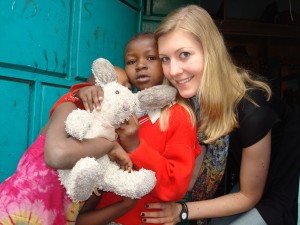For April/May edition of the SEI Newsletter
Awareness, Action and Social Entrepreneurship
KONY 2012. It’s been a hot discussion topic around many campuses, ours included, over the past several weeks. Is it a good or a bad thing that an organization like Invisible Children focuses on awareness, rather than action that leads to real change and lasting impact. Should we be concerned about how much donor money is invested in telling a tragic story, rather than changing the outcome of the story? Is the money being raised from young people across the United States “smart money” where the giver fully understands what she is really investing in?
The purpose of this short note is not to offer a critical commentary on the Invisible Children organization or its founders. I certainly commend the organization for its efforts to engage young people in critical thinking about problems like global poverty and the abuse of already marginalized children. Rather, the controversy surrounding the KONY 2012 viral video offers an important opportunity to consider the different roles and responsibilities of advocates, activists, philanthropists and social entrepreneurs in addressing social problems.
Advocates and activists play critical roles in addressing social problems, primarily by increasing awareness among those who are not close to, interested in or touched by a particular social problem. Advocacy and activism can and often does lead to the next step, which is action. Philanthropists are the key players who fund typically charitable organizations that either take action to address the social problem or financially support those who do. Social entrepreneurs, or at least the best ones, are the people who convert awareness and giving into grassroots action, by creating and developing innovative and sustainable enterprise solutions to the underlying social problem. I have no doubt that social entrepreneurs will continue to work quietly and effectively to effect change at the grassroots level that improves the lives of marginalized children and young people, in Uganda and throughout the world, without fanfare or film. These are the change agents that truly deserve the attention, support and investment of concerned global citizens.
Awareness is an essential first step in addressing any problem. We hope that the world, and especially the young, will see that the less “sexy” but equally important next step of entrepreneurial action, also deserves their attention, and support. We see compelling examples of this kind of action everyday when working with social enterprises like Root Capital (provides the “missing middle” of financing for agricultural cooperatives), Technoserve (providing technical assistance and business consulting services to poor farmers around the world), Fonkoze (microcredit and services for Haiti’s poorest women), and TSiBA South Africa (educating South Africa’s next generation of entrepreneurs).
 I’m sure that there are many young Ugandan and other social entrepreneurs working as I type this note to improve and strengthen educational and employment opportunities for young people in their home country, for example. They are taking action to make the real change we all hope to see, one child at a time.
I’m sure that there are many young Ugandan and other social entrepreneurs working as I type this note to improve and strengthen educational and employment opportunities for young people in their home country, for example. They are taking action to make the real change we all hope to see, one child at a time.
For an example of young people making a difference in similar circumstances in Kenya, have a look at The Paradigm Project, where one of program alums Nele Groosman is currently working to bring clean burning stoves to the informal settlement of Kibera: http://www.theparadigmproject.org/


